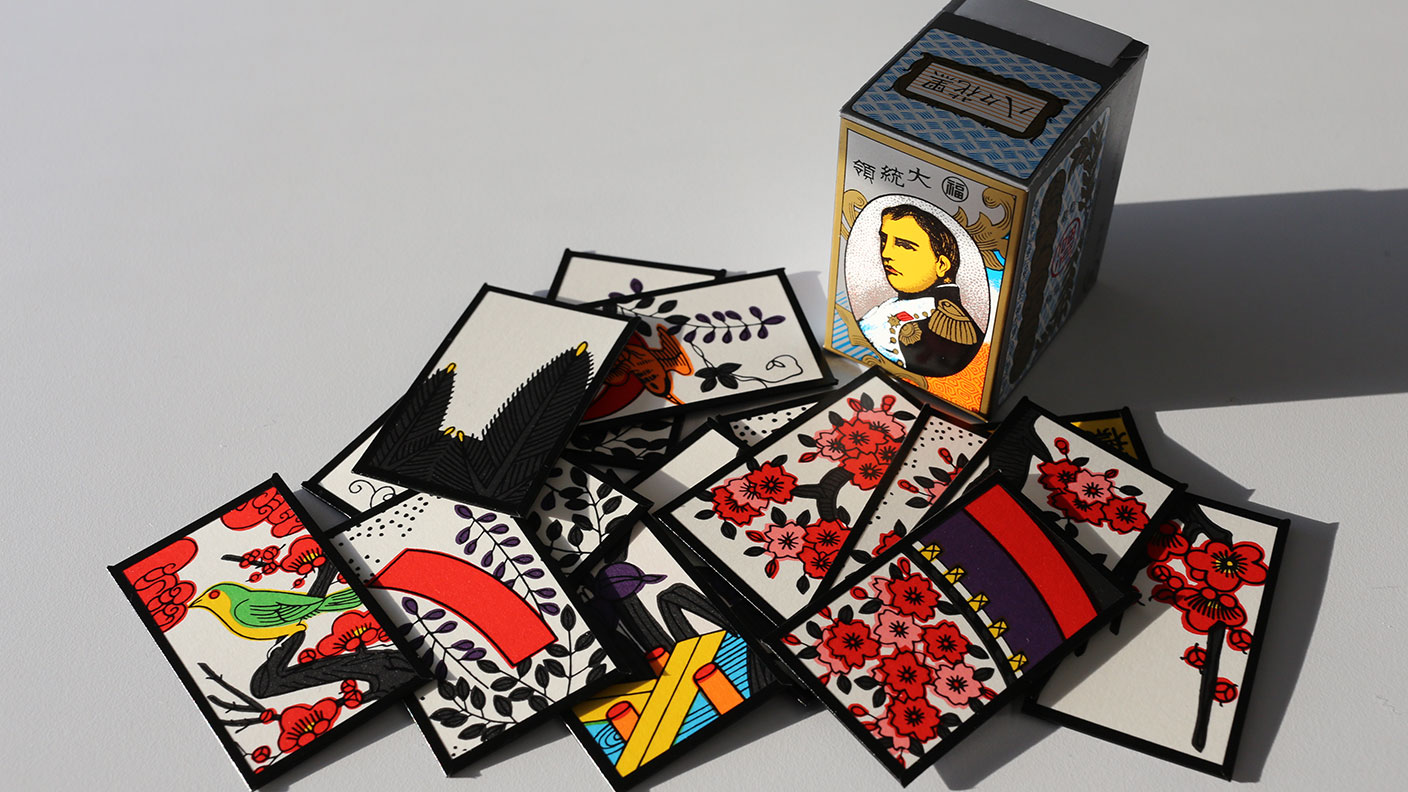23 September 1889: Nintendo starts making playing cards
On this day in 1889, ‘Nintendo Koppai’ began making Hanafuda playing cards. Fast forward 130-odd years, and it's an electronics company worth around £58bn.


Get the latest financial news, insights and expert analysis from our award-winning MoneyWeek team, to help you understand what really matters when it comes to your finances.
You are now subscribed
Your newsletter sign-up was successful
Want to add more newsletters?

Twice daily
MoneyWeek
Get the latest financial news, insights and expert analysis from our award-winning MoneyWeek team, to help you understand what really matters when it comes to your finances.

Four times a week
Look After My Bills
Sign up to our free money-saving newsletter, filled with the latest news and expert advice to help you find the best tips and deals for managing your bills. Start saving today!
Hear the name Nintendo and you probably think of Super Mario and his cartoon brethren. Perhaps it's the Entertainment System you got that Christmas in 1986 that's now gathering dust in the attic. Or the television screen you sacrificed to an overly exertive session on the Wii Fit.
What may not come to mind is a pack of playing cards. But if you were sitting in your living room in Kyoto, Japan, at the end of the 19th century, that's exactly what your Nintendo would have looked like a deck of beautifully hand-painted Hanafuda' cards.
Western-style playing cards first arrived in Japan with European missionaries in the 16th century. The Japanese soon became hooked on them quite literally so, leading to a crackdown on gambling. Japan then entered a long isolationist phase, and the cards were banned.
MoneyWeek
Subscribe to MoneyWeek today and get your first six magazine issues absolutely FREE

Sign up to Money Morning
Don't miss the latest investment and personal finances news, market analysis, plus money-saving tips with our free twice-daily newsletter
Don't miss the latest investment and personal finances news, market analysis, plus money-saving tips with our free twice-daily newsletter
Traditional versions of the playing cards appeared from time to time. And so long as they weren't used for gambling, they were mostly tolerated. Then, with the Meiji Restoration in 1868, Japan began to open itself up to the outside world once more.
While playing cards were no way near as popular as they had once been, an entrepreneur named Fusajiro Yamauchi set up a business in Kyoto in September 1889 making Hanafuda cards.
These “flower cards” consisted of 48 ornate cards with floral designs, which were divided into 12 suits, representing the months of the year. Yamauchi called the company Nintendo Koppai.
Today, Nintendo, a company with a market cap in the region of £58bn, and its headquarters in Kyoto, still makes Hanafuda cards along with a range of other traditional playing cards and board games for the Japanese market.
But for us in Britain, we'll just have to go back to another round of Super Mario Kart.
Get the latest financial news, insights and expert analysis from our award-winning MoneyWeek team, to help you understand what really matters when it comes to your finances.

-
 Should you buy an active ETF?
Should you buy an active ETF?ETFs are often mischaracterised as passive products, but they can be a convenient way to add active management to your portfolio
-
 Power up your pension before 5 April – easy ways to save before the tax year end
Power up your pension before 5 April – easy ways to save before the tax year endWith the end of the tax year looming, pension savers currently have a window to review and maximise what’s going into their retirement funds – we look at how
-
 31 August 1957: the Federation of Malaya declares independence from the UK
31 August 1957: the Federation of Malaya declares independence from the UKFeatures On this day in 1957, after ten years of preparation, the Federation of Malaya became an independent nation.
-
 13 April 1960: the first satellite navigation system is launched
13 April 1960: the first satellite navigation system is launchedFeatures On this day in 1960, Nasa sent the Transit 1B satellite into orbit to provide positioning for the US Navy’s fleet of Polaris ballistic missile submarines.
-
 9 April 1838: National Gallery opens in Trafalgar Square
9 April 1838: National Gallery opens in Trafalgar SquareFeatures On this day in 1838, William Wilkins’ new National Gallery building in Trafalgar Square opened to the public.
-
3 March 1962: British Antarctic Territory is created
Features On this day in 1962, Britain formed the British Antarctic Territory administered from the Falkland Islands.
-
10 March 2000: the dotcom bubble peaks
Features Tech mania fanned by the dawning of the internet age inflated the dotcom bubble to maximum extent, on this day in 2000.
-
9 March 1776: Adam Smith publishes 'The Wealth of Nations'
Features On this day in 1776, Adam Smith, the “father of modern economics”, published his hugely influential book The Wealth of Nations.
-
 8 March 1817: the New York Stock Exchange is formed
8 March 1817: the New York Stock Exchange is formedFeatures On this day in 1817, a group of brokers moved out of a New York coffee house to form what would become the biggest stock exchange in the world.
-
7 March 1969: Queen Elizabeth II officially opens the Victoria Line
Features On this day in 1969, Queen Elizabeth II took only her second trip on the tube to officially open the underground’s newest line – the Victoria Line.